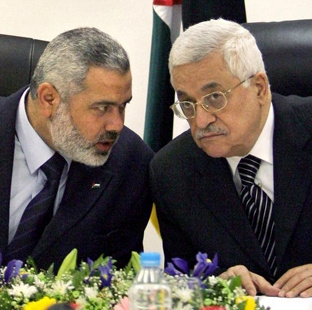Fatah-Hamas Reconciliation, The Herald of a New Age in International Ties

 IRD: How do you assess the impact of international circumstances on the recent Fatah-Hamas deal?
IRD: How do you assess the impact of international circumstances on the recent Fatah-Hamas deal?
HS: International relations are undergoing a structural transformation; a transformation that has manifested itself in different ways according to its location. The international structure has no more a classical ‘pole’-- a central power that influences every relationship.
Formation of different layers of relations in economic, cultural, etc. domains, and in social movements among international players is another aspect of this transformational process. Meanwhile, new actors have emerged which can’t be defined if we rely on classical definitions and classical structures of international relations. Social movements, social networks, global information and communication networks have proved themselves as actors of a new ilk in the international arena. In many parts of the world, political movements have emerged out of these structural cracks.
Such developments have created a situation in which it is not merely the major states, international alliances, and inter-state meetings that make the big decisions, but also independent groups which influence the decision-making process. Palestinian groups and actors have sensed and appreciated this new opening which allows them to act independently from polarized atmospheres and blocs.
Moreover, we are witnessing a ‘turn’ of consciousness and discourse over the Palestinian issue. In the classical politics of our age, the prevalent narrative was that of an established government-- Israel-- against Palestinian saboteurs. Israel was promoted as a democratic state trying to preserve the order, undermined by Palestinian militants.
However, this narrative has undergone a substantial change during recent years. With the increasing importance of information and communication networks and non-state actors, this image is gradually shifting. The appalling Gaza 2009 [Operation Cast Lead] raid and the bloody attack on the Turkish aid flotilla heading to Gaza turned the game against Israel and in favor of the Palestinians. Israel’s masquerade was exposed and the world discovered the real nature of Israel and its ruthless war machine, which favored arbitrary killings.
During the last three years, Israel has been under international pressure, even from its arch-patron Washington.
IRD: Some analysts believe that one driving force behind the Fatah-Hamas reconciliation was their loss of regional patrons. Fatah has lost Mubarak’s support, and Hamas is following the Syrian government’s battle against pro-democracy masses with worry. How much do you agree with this theory?
HS: As I said, the uprisings in Syria and Egypt are the outcomes of the changing global order. These developments will inevitably affect their regional allies. But this is not the adequate cause in my opinion. Fatah and Hamas could stay at either side of the gap without bearing pressure from the international community. Their roots run deep in Palestinian society, so regarding them fully dependent on foreign patrons is erroneous. The paradigm shift which has occurred for these groups is the real cause of reconciliation. They also know that for the first time in decades, the international community is ready to embrace Palestine’s statehood.
IRD: The Palestinian Authority will file for unilateral declaration of independence in the next UN General Assembly. Many countries have already recognized Palestine as a sovereign state. How serious are the chances of formation of a Palestinian state?
HS: This is the first time a Palestinian state has found the opportunity to come into existence. You may perhaps know that since the Jews’ Exodus to the Holy Land, Palestinians have never had a sovereign state. But know they have this opportunity, even if their territory will be much smaller than what they deserve and are eligible to possess.
IRD: What are the likely obstacles?
HS: Palestinians will face tough opposition from some members of the international community. Even some Muslim countries may grimace at the prospect of an independent Palestinian nation. But the bright picture is that if major Muslim countries such as Iran, Saudi Arabia, and Turkey recognize the Palestinian state, some EU members, East Asian countries, and even some political currents inside the US, will support their decision. But it is not that easy. There is no specific land Palestine can be built on. In the West Bank, for example, what they own is chunks of land separated by Israelis, who are turning it into a Jewish region with continuous settlement construction to render its influence permanent in this region. The West Bank is a landlocked region, and Gaza’s only outlet to the outside world is the Rafah crossing border with Egypt. As long as critical problems such as these-- and also the fate of Jerusalem and Palestinian refugees-- persist, realization of a Palestinian state faces tough challenges and Israel will add to pressure on Palestine. However, it seems that in the upcoming months, a large number of countries-- maybe half the UN members—will recognize Palestine.

